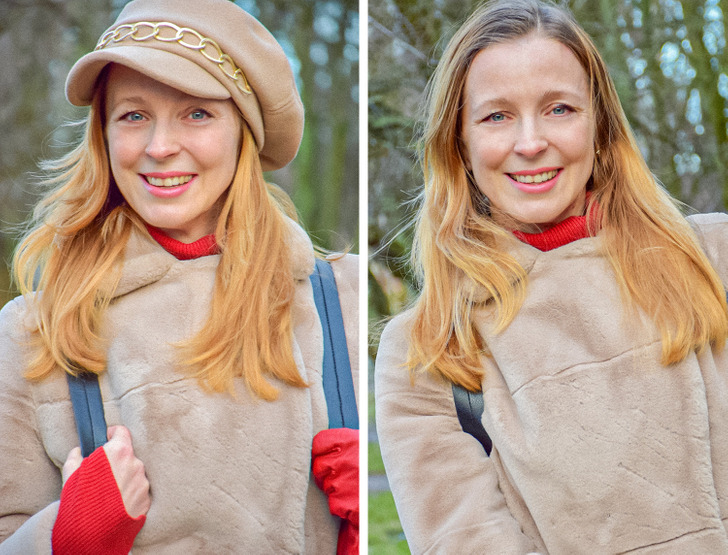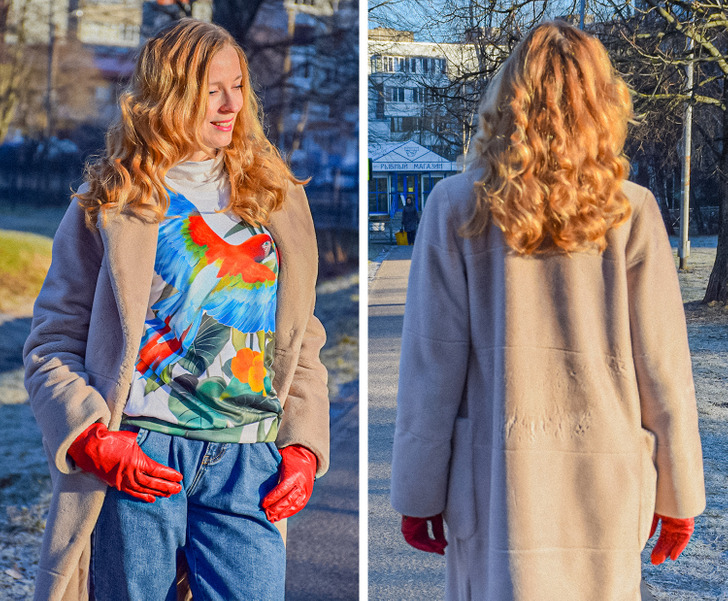The Answer to Whether You Should Wash Your Hair Less Often to Keep It Clean for Longer
The oiliness of hair, and therefore, how often it needs to be washed, depends on the glands that produce sebum. They are located near the hair roots in the layer of skin called the dermis. Sebaceous glands are connected to hair follicles through channels. This way, sebum gets to the scalp and then to the hair. The activity of the sebaceous glands depends on hormones and age, as well as how often we wash our hair — the more often we do it, the more sebum the glands produce.
At 5-Minute Crafts, we decided to conduct our own experiment and check whether the hair really stays clean for longer if you wash it less often.

My name is Victoria. Previously, I used to wash my hair 3 times a week. My hairstylist had to leave town for a while, and I had to do without hair care for 5 to 6 months between our meetings. I didn’t want to go to a new stylist I didn’t know, so I began to wash my hair every second day. Thanks to this frequency, my hair always looked well-groomed, making my undyed roots less noticeable.
However, I noticed that my hair began to look oily as early as the second day after washing it. I didn’t have time to wash it daily, so I took into account experts’ recommendations and decided to train my hair so that I could wash it less often. In the photo above, you can see how my hair looked on the day of washing.
The second day after washing

I wanted to reduce the frequency of washing to once every 5-7 days and used the following scheme:
Step 1: Postpone your regular day of hair washing for a day or two.
Step 2: Let your hair adapt to this new frequency (I didn’t have time for this step since I had to finish my experiment by a certain date, which is why I had to postpone washing my hair for 1 more day each time).
Step 3: Be patient and continue to reduce the frequency.
The first time, I postponed washing my hair for 1 day, meaning I washed my hair not on the second day, as I usually did, but on the third day. On the second day, my hair began to look oily at the roots and rather flat. I had the urge to wash my hair, but I stayed strong.
The third day after washing

You can see in the photos how my hair looked on the third day right before I washed my hair. Thanks to the cold season, I could hide it under a hat when outside. But without it, I didn’t feel confident at all because my hair looked greasy and flat at the roots.
The fourth day after washing

Next time, I didn’t wash my hair for 4 days. Surely, the roots looked greasy, and I hid them under a scarf. To make my hair look more voluminous I braided it for the night and wet it a bit. When I unbraided my hair in the morning, it looked slightly wavy.
The fifth day after washing

This time I didn’t wash my hair for 5 days. But I had to use dry shampoo, which absorbed excess sebum. In addition, I decided to make my hair more voluminous, so I curled it by twisting it around a wide hair tie into a loose bun on the top of my head for the night.
The experiment results

To my surprise, I can say that this method really works. During the first 3 weeks of the experiment, I thought that this was nonsense and that my hair would be dirty most of the time. On the fourth week, I noticed that my hair got oily at a much slower pace.
The photos above were taken on the fifth week of the experiment. This was the sixth day without washing my hair and using dry shampoo. I think the results are obvious.
Other results of my experiment:
- This approach saves a lot of time.
- It reduces the consumption of hair care products, such as shampoo, hair masks, and hair conditioners, meaning that you save money.
- The quality of your hair improves. My locks began to look more alive and glossy after a month of the experiment. That’s why experts say that hair washing is not really good for your hair because shampoos strip away the hair’s natural oils and make it weaker. A conditioner can replace the moisture balance necessary for healthy hair just partly.
- I became more creative in terms of my hair. I had worn the same hairstyle for many years. During the experiment, I did a ponytail, decorated my hair with a silk scarf, and curled it. I really loved the result. Also, you can tie your hair in a bun, braid it, experiment with a low and high ponytail, and adorn your hair with a band or clips. They all can help you feel more confident in your looks.
Tips and tricks
- To help your hair adapt to the less frequent washing, you should be prepared for the idea that your hair will be greasy sometimes.
- Take your time. Reduce the frequency of washing just by 1 day. When your hair gets used to the new frequency, add another day, and so on. It’s possible that you’ll need up to 6 months to train your hair properly.
- Use dry shampoo. This hair product helps to reduce the frequency of washing and allows you to look well-groomed at the same time.
- Make sure your towel is clean when you dry your hair. Change your pillowcases regularly and wash your hairbrushes and accessories. This all will help you keep your hair clean and, therefore, wash it less often.
- Brush your hair 2-3 times a day. This will help to distribute natural healthy oils that your scalp produces from the roots to the ends. As a result, your hair will become stronger and shinier.
- Apply a mask or conditioner only to the ends of your hair. Don’t let it get on your scalp because this can make it more oily.
- Don’t touch your hair too often. Our hands are not always clean. They sweat and can be oily. So to keep your hair clean for longer, try to touch it less often unless you brush it or style it.
- Replace hair ties that you use to tie your hair with hair clips. They don’t damage your hair or leave creases that ruin your hairstyle and make you want to wash your hair.
Experiment conclusions: by reducing the frequency of hair washing, you save a lot of time and money. Additionally, your hair becomes healthier, stronger, and more obedient.